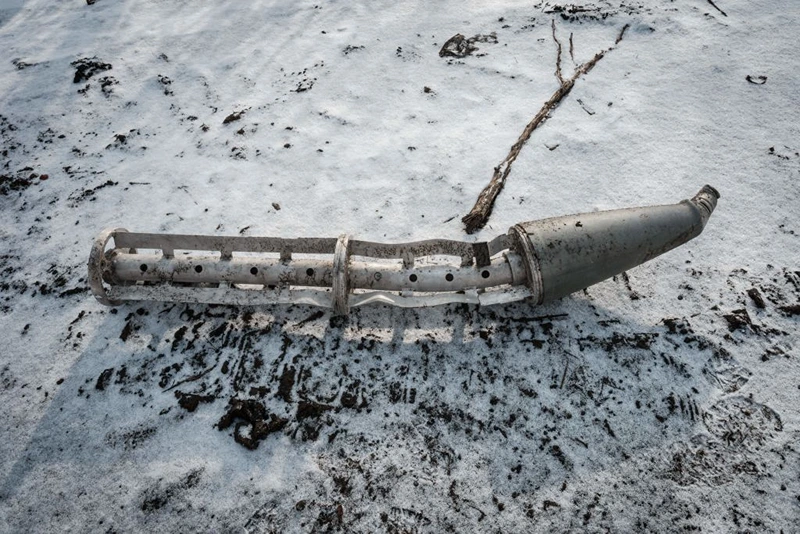
OAN’s Roy Francis
9:23 AM – Friday, July 7, 2023
White House officials told NPR that the Biden administration plans to send cluster bombs to Ukraine as part of the next military aid package.
An announcement is expected from the Biden administration later on Friday to confirm that the Pentagon will send thousands of Dual Purpose Improved Conventional Munitions (DPICMs) to Ukraine as part of the new military aid package worth up to $800 million.
The DPICMs are surface-to-surface warheads that are designed to explode and send multiple small munitions, which can range from small rounds to small explosives, over a wide area to cause as much damage as possible. The rounds that are dispelled can also be shape charges that are designed to penetrate armored vehicle.
“What DPICMs bring to a battlefield is anti-armor and anti-personnel capability,” Pentagon Press Secretary Brigadier General Pat Ryder said on Thursday. “So, essentially it can be either loaded with shape charges, which are armor penetrating, or they can be loaded with fragmentary munitions, which are anti-personnel. So clearly, a capability that would be useful in any type of offensive operations,”
In 2008, an international treaty, which was signed by over 120 countries, banned the transfer, use and stockpiling of the weapons. However, the United States, Ukraine and Russia did not sign the treaty.
The decision by the Biden administration is met with criticism and resistance from other world leaders, as well as the NATO Secretary General Jens Stoltenberg who disapproves of the decision, however he said that the decision is up to individual nations.
“A number of allies have signed the convention but a number of allies have not signed the convention and it is for individual allies to make decisions on the delivery of weapons and military supplies to Ukraine,” Stoltenberg said. “So, this will be for governments to decide, not for NATO as an alliance. We have to remember that this brutality is also reflected by the fact that everyday we see casualties from cluster munitions on both sides. Russia [uses] cluster munitions in their war of aggression to invade another country, while Ukraine is using them] to defend itself.”
The risk of the cluster munitions comes from their high rate of failure, and that they do not always explode when fired. When they do not explode, civilians are at increased risk of death or injury if they accidentally discover an undetonated round and trigger an explosion.
U.S. law prohibits the transfer of cluster munitions with a failure rate higher than 1%, however President Joe Biden is able to bypass the rule and the variant of the weapon that is planned on being sent to Ukraine has a failure rate of 2.35% or below based on tests conducted in 2020.
The aid package also includes Bradley and Stryker fighting vehicles, air defense missiles and anti-mine equipment.
Stay informed! Receive breaking news blasts directly to your inbox for free. Subscribe here. https://www.oann.com/alerts

